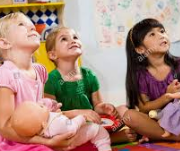
Throughout time and across the world, the concept of “family” has traditionally signified as being a core ‘unit’ that lays a firm grounding and foundation of the future of us individuals. Families are said to be founded upon a shared bloodline and genetics, and united by shared beliefs, values, morals, vision, and lifestyle.
The dictionary definition of the word “family” is centred around a basic unit comprising of two parents, their children, shared ancestry, genetics and a system of values, beliefs and in some cases, religion. The key definition always has revolved around children. So, does that mean you are not a family without kids?
Traditionally having children and carrying on the family name was mandatory and a cornerstone to sustaining this unit. However, globalisation has made the world a lot smaller leading to better connectivity and people moving away from their families for work, travel or business purposes.
So, what does the word family mean for childfree people? Who defines it? Surely without having children in the traditional family sense, we can still have a family.
The structure of families has now further evolved into single and solo parents with children and even homosexual couples with children. Although the structure, dynamics, and composition of families have changed radically, does the concept of the family have the same meaning, definition, and significance universally?
Since we were born into this world, our upbringing, society and the media has always reinforced that family is the most important thing in the world. Furthermore, it is our duty as humans to honor them and what they have taught us, uphold the values they have inculcated into us, follow the path they have set out for us and prioritise our loyalty towards them more than anything else. After all, they have brought us into this world, raised us and the reason we live and exist.
In certain cultures, choosing not to have children, and defying societal and family norms by making alternative life choices, can be viewed as dishonour, leading them to be ostracised and disowned by the very people who are supposedly their most non-judgemental, greatest source of strength, support, and unconditional love.
Speaking of unconditional love, if that is determined solely by bloodline, heritage and ancestry, how come there are so many unwanted and unloved children in this world? What is with the ubiquity of utterly horrific cases of child abuse, neglect, and trauma that is keeping social workers and child protective services busier than ever?
All of these examples begs the question – is having children the be-all and end-all in creating and sustaining a family unit? Does bloodline always equal undivided loyalty and unconditional love and support?
As an Indian childfree woman, I would argue that family can be more than mum, dad, and two kids, after all, I am living proof. More on that another time.
Shweta Ramkumar @srinthehouse
Source image: Familylovetoknow.com










Leave a Reply
Want to join the discussion?Feel free to contribute!